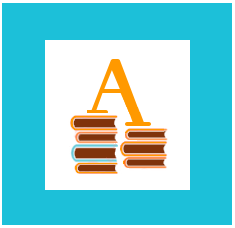 |
| Artwork by © Francis Mead for the 10 ACTION STEPS FOR PUERTO RICO illustration project |
Foreword to Anansesem's Special Issue on Puerto Rico, by guest editor, Sujei Lugo Vázquez
Literacy, education, and activism have played, and continue to play, a major role in moving Puerto Rico and our communities forward, serving as vehicles for resistance, change, and empowerment for our islands, people, and youth. The impact of, and challenges resulting from, our history of colonialism and imperialism, have ignited and compelled us to organize, educate, write, illustrate, and share our histories and experiences through storytelling and social activism. The ongoing economic and political crisis, along with the impact of Hurricane María, have foregrounded the need for Puerto Rican self-determination. We have become even more aware of the power of community organizing, the importance of education and literacy projects, the crucial role of youth in the present and future, and the tools we have at our disposal for recording our memories, reflections, and stories.
In this special bilingual issue, I wanted to showcase Puerto Rican literacy and storytelling projects and efforts that are connecting youth to local literature and Puerto Rican history, including the different storytelling formats and techniques being used. I also wanted to examine the current status of Puerto Rican children’s literature, and feature fiction and poetry created by upcoming and established Puerto Rican children’s authors and illustrators, using the language(s) that best represents their voices. The pieces featured here are merely a cross section of the voices, perspectives, and literacy activism of people living in Puerto Rico, and people with diasporic connections to the Puerto Rico islands. The issue includes contributions from writers, students, illustrators, teachers, professors, librarians, bloggers, storytellers, and activists. I thank each one of them for their creative labor and the sincerity expressed in their work.
In capturing lived experiences of Hurricane María and the disaster's impact on Puerto Rican life, families and communities, this issue explores social, political, cultural and historical themes central to Puerto Rican identity. In describing their post-María youth literacy initiatives, their experiences with Puerto Rican children’s literature, and the stories and histories that need to be told, many of the contributors are honest about the challenges faced. They also share valuable ideas about what needs to be done and how changes can be implemented to move Puerto RicoIt is our duty to provide the tools needed to build better futures with, and for, our children and their literature.
 |
| CLICK HERE TO GO TO THE ISSUE. |
This is just a glimpse of the work, voices and collaborations tied to children’s literature in Puerto Rico. Each experience, sentiment and reflection is valid and part of the collective and historical process of cultural memory-making. Collaborations are intrinsic for rebuilding communities. Intergenerational, marginalized, silenced and underrepresented voices play a crucial role in rewriting Puerto Rican history and Puerto Rican children’s literature. Lastly, it is by looking to, and (un)learning from, the past and the present that we become empowered to continue resisting the injustices perpetrated upon our people and peoples around the world. Yes, este cuento (no) ha terminado, and it is our duty to provide the tools needed to build better futures with, and for, our children and their literature.
*Guest-edited issues are line edited and proofread by Anansesem staff.















I invite you to the project Vivo del Cuento to promote literacy. It’s a good example of what one person, with NO budget and volunteers can do!! Page in Facebook Vivodelcuentopr. Email: vivodelcuento@gmail.com
ReplyDelete